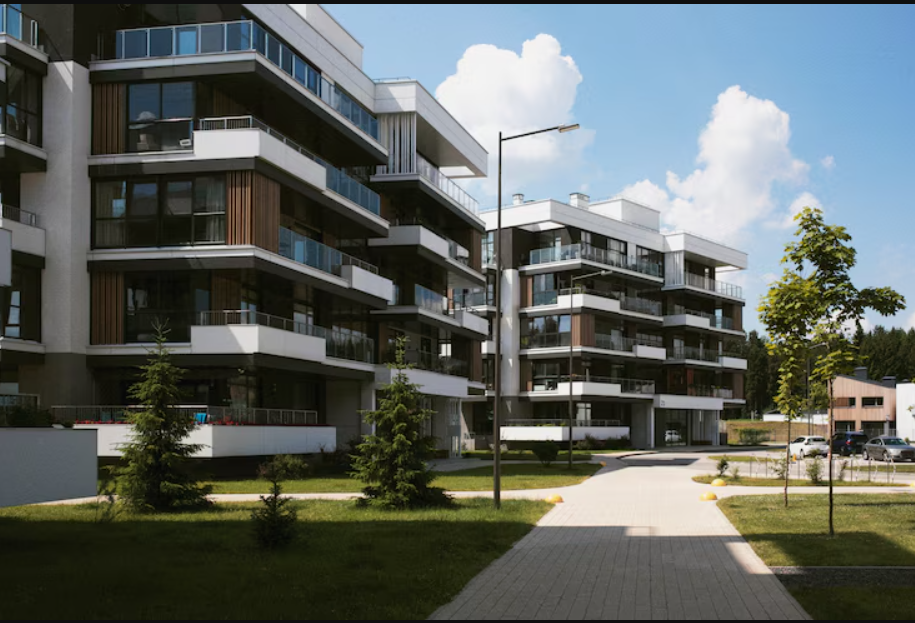How Do LA’s Property Development Regulatory Tools Really Work?
A Complete Guide to HESS, TOC, and Specific Plan Checkers
Los Angeles has one of the most complex real estate markets in the country. Developers face a maze of zoning rules, housing mandates, and local planning programs. If you’re planning to build in LA, understanding the city’s key regulatory tools is essential.
Recent years brought major changes through new state housing laws and local planning initiatives. Three property development regulatory tools now play a central role in how LA approves development projects:
-
Housing Element Site Selection (HESS)
-
Transit Oriented Communities (TOC)
-
Specific Plan Checkers
Each serves a different purpose but works together to shape growth, ensure compliance, and promote affordable housing.
What Is Housing Element Site Selection (HESS) and Why Does It Matter?
HESS is California’s core planning tool to meet housing targets. It stems from the Regional Housing Needs Allocation (RHNA) process, which assigns housing quotas to cities.
To comply with RHNA, LA must identify sites that could support thousands of housing units. HESS helps developers align with these targets by flagging qualifying parcels.

Key HESS Requirements and Criteria
To be eligible for HESS, a development site must meet several benchmarks:
-
Zoning and Density: Sites must be zoned for residential use with adequate density.
-
Infrastructure: Existing capacity for utilities like water and sewer is crucial.
-
Environmental Concerns: Sites with environmental constraints face added review.
-
Market Feasibility: The city checks whether development is economically realistic.
HESS Impact on Development Projects
| What Gets Checked | Importance | Time Added | Cost Added |
|---|---|---|---|
| Zoning Rules | Very Important | 2–4 months | $15,000–$50,000 |
| Infrastructure | Important | 6–12 months | $100,000–$500,000 |
| Environmental | Very Important | 4–8 months | $25,000–$200,000 |
| Market Analysis | Important | 1–3 months | $10,000–$30,000 |
Projects aligned with HESS may receive faster reviews and qualify for benefits under Senate Bill 9 and other housing legislation.
Understanding LA’s Transit Oriented Communities (TOC) Program
TOC is a local incentive program that encourages building near public transit. In exchange for adding affordable housing, developers get benefits like increased density and reduced parking requirements.

Incentives are based on a four-tier system tied to proximity to major transit hubs:
-
1st Tier: Best access, most benefits
-
Tier 2 & 3: Moderate access, moderate benefits
-
4th Tier: Basic access, minimal bonuses
TOC Tier Structure and Benefits
Tier 1 (Closest to transit)
-
Up to 80% density bonus
-
Reduced parking and increased height allowances
2-3 Tier (Medium access)
-
35%–70% density bonus
-
Moderate reductions in parking requirements
Tier 4 (Basic access)
-
35% density bonus
-
Minimal design and parking relief
TOC Affordable Housing Requirements
| Tier | Required % of Affordable Units | Income Target | Compliance Options |
|---|---|---|---|
| 1st Tier | 11% | Very Low Income | In-lieu fee possible |
| 2nd Tier | 8% | Low Income | Off-site development allowed |
| 3rd Tier | 6% | Moderate Income | Land dedication possible |
| 4th Tier | 5% | Moderate Income | Mix-and-match strategies |
Note: When TOC guidelines conflict with a specific plan, the specific plan takes precedence.
Navigating Specific Plan Checkers in LA
Specific plans govern smaller geographic areas in LA with more detailed zoning rules. They protect neighborhood character while guiding growth.
Each plan sets its own standards for:
-
Building height
-
Setbacks
-
Parking
-
Design and materials
-
Affordable housing and public space
Major LA Specific Plans and Their Focus Areas
-
Hollywood: Encourages density near transit while preserving entertainment uses and historic character
-
Downtown LA: Focuses on mixed-use, high-density growth with minimal parking requirements
-
Venice: Prioritizes coastal protection and affordable housing
-
West LA: Maintains strict height limits and single-family zoning integrity
Specific Plan Compliance Process
-
Initial Review: Focus on zoning, height, setbacks
-
Design Review: Aesthetic compliance, architectural quality
-
Community Input: Neighborhood outreach and feedback
-
Final Coordination: Inter-agency sign-offs from Planning, Building & Safety, etc.
Case Study: TOC + Specific Plan Success in Hollywood
Project Overview
A 150-unit mixed-use development in a Tier 2 TOC area leveraged all three tools:
-
70% density bonus
-
50% parking reduction
-
Height increase from 45 ft to 75 ft
-
The HESS-aligned site = expedited review
-
Hollywood Plan compliance = smooth design approvals
Timeline:
Approval in 18 months (vs. typical 36)
Construction started in 24 months
Financial Upside:
$8M+ gain from density & parking bonuses
$2M saved in carrying costs
Regulatory Tool Integration Strategies
Strategic Planning
-
Evaluate all tools early
-
Submit coordinated applications
-
Build a strong team (land use attorneys, planners, architects)
Integration Challenges
-
Conflicting rules (TOC vs. specific plan)
-
Unmatched approval timelines (HESS may take 6 months; TOC, 3 months)
-
Stacked application costs
Future of LA’s Regulatory Landscape
Trends to Watch
-
Faster reviews through state pressure
-
Expanded TOC zones with more perks
-
Digital tools for compliance
-
More collaboration between city departments
Preparing for Regulatory Changes
-
Track policy updates
-
Keep your project flexible
-
Maintain relationships with planning staff and consultants
Practical Implementation Guide
Step-by-Step Development Process
1st Phase: Initial Assessment (Months 1–2)
-
Analyze site, TOC eligibility, HESS status, specific plan rules
2nd Phase: Strategy Development (Months 2–3)
-
Build integrated plan, assemble team, prepare cost projections
3rd Phase: Application Preparation (Months 3–6)
-
Submit documentation, finalize design, engage community
4th Phase: Review and Approval (Months 6–18)
-
Coordinate revisions, respond to feedback, secure permits
Key Performance Indicators for Success
| Metric | Target | Industry Avg | Best Practice |
|---|---|---|---|
| Approval Time | 12–18 months | 24–36 months | <12 months |
| Cost Overruns | <10% | 15–25% | <5% |
| Plan Revisions | 1–2 rounds | 3–4 rounds | Single round |
| Community Support | Minimal opposition | Moderate resistance | Strong support |
Financial Considerations

HESS Costs
-
Review fees: $15,000–$30,000
-
City processing: $5,000–$15,000
-
Savings: $200,000–$500,000 (via faster reviews)
TOC Costs & Benefits
-
Application: $10,000–$25,000
-
Affordable housing: $50,000–$100,000/unit
-
Value gain: $5M–$15M for large projects
-
Parking savings: $30,000–$50,000/space
Specific Plan Costs
| Area | Review Fees | Design Costs | Time Impact | Total Investment |
|---|---|---|---|---|
| Hollywood | $8K–$15K | $25K–$50K | 3–6 months | $50K–$100K |
| Downtown | $12K–$20K | $30K–$75K | 4–8 months | $75K–$150K |
| Venice | $10K–$18K | $35K–$60K | 6–12 months | $80K–$125K |
| West LA | $6K–$12K | $20K–$40K | 2–4 months | $40K–$75K |
-
Approval Delays → Solve with strong prep and timelines
-
Cost Escalation → Use contingency planning
-
Design Revisions → Design flexibly from day one
-
Stakeholder Pushback → Proactively engage the community
Technology Tools to Support Development
-
ZIMAS: Zoning & land use info
-
TOC Mapping Tool: Tier verification
-
ePlan Check: Digital plan review
-
HESS Database: Housing element compliance info
Emerging Tech
-
AI planning tools
-
Virtual reality walkthroughs
-
Automated compliance checkers
Frequently Asked Questions on Property Development Regulatory Tools
How long does it typically take to navigate all three regulatory tools for a major development project?
Timelines vary. A well-prepared project using HESS, TOC, and specific plan approvals generally takes 12–18 months for regulatory clearance. Complex or controversial projects may take 24–36 months. Early preparation and coordinated submissions can significantly shorten the process.
Can a project qualify for TOC incentives while also being on the HESS inventory?
Yes—and this combination can be especially powerful. HESS designation often enables expedited reviews, while TOC incentives provide generous development bonuses. However, affordable housing requirements must be carefully aligned to avoid conflicts.
What happens when TOC guidelines conflict with specific plan requirements?
Specific plans take precedence. Courts have confirmed that specific plan rules override conflicting TOC provisions. Developers should work closely with city staff early in the process to find compliant design solutions that meet both frameworks.
Are there any upcoming changes to these regulatory tools that developers should know about?
Yes. California continues to introduce new housing bills that streamline processes and expand incentives. LA also updates TOC and specific plans based on performance reviews and community input. Ongoing monitoring of legislation and city planning updates is essential.
How much should developers budget for professional consultant fees when using these tools?
Expect to budget $100,000–$300,000 for land use attorneys, planners, architects, and technical specialists. These costs typically represent 2–4% of a total project budget—and can often be recouped through faster approvals and higher development yields.
What are the most common mistakes developers make when using these regulatory tools?
The biggest mistake is treating each tool in isolation. Sequential navigation creates delays and missed optimization opportunities. Others include poor community engagement, weak site analysis, and underestimating compliance costs. The most successful developers invest early in planning and realistic timelines.
Additional Resources and References
Government Resources
-
Los Angeles City Planning Department – Primary source for Maps (ZIMAS), specific plans, and planning application services
-
California Department of Housing and Community Development (HCD) – State-level housing policy, RHNA implementation, and Housing Element guidance
-
LA Metro Transit Oriented Communities (TOC) Program – Official TOC incentive guidelines and tier maps
-
Los Angeles Housing Department (LAHD) – Affordable housing programs, compliance tools, and tenant resources
Professional Resources
-
ZIMAS – Online parcel lookups including zoning, overlay districts, and environmental data
Take the Next Step in Your LA Development Journey
Understanding LA’s property development regulatory tools is only the beginning. While HESS compliance, TOC incentives, and specific plan navigation create powerful opportunities, success depends on expert guidance and a strategic, integrated approach.

At JDJ Consulting, we specialize in helping developers navigate Los Angeles’s evolving regulatory environment. Our team combines deep local expertise with proven strategies to:
-
Maximize development potential
-
Minimize costly delays
-
Accelerate approval timelines
Whether you’re planning your first LA project or scaling an existing portfolio, we’ll help you turn complex regulations into a competitive advantage. From initial site analysis through final permitting, our support covers every step of the process.
Don’t let regulatory uncertainty slow your momentum. Contact JDJ Consulting today to discover how our targeted expertise can help you move faster, smarter, and with greater confidence.
Schedule your free consultation with the property experts at JDJ Consulting and take the first step toward successful LA development. Call us now: +18188276243






7 Steps of EIA | Environmental Impact Assessments Guide
June 26, 2025
[…] Regulatory bodies review the quality, scope, and methodology. […]